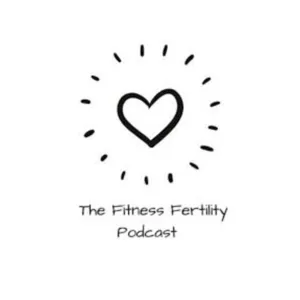Progesterone Power-Up & How to do it!

Topics covered:
Regulating Body Weight: Excess body fat, especially around the abdomen, can disrupt hormones, including progesterone levels. By promoting weight management, exercise supports healthy progesterone levels, thus enhancing fertility.
Reducing Stress: Exercise is a potent stress reducer, stimulating the production of endorphins, the body's natural mood elevators. High stress levels can disrupt hormonal balance, including progesterone. Engaging in physical activity helps lower stress levels, supporting optimal progesterone production.
Improving Insulin Sensitivity: Regular exercise enhances insulin sensitivity, vital for overall hormone regulation. Insulin resistance, often linked to conditions like PCOS, can lead to hormonal imbalances, including decreased progesterone levels. By improving insulin sensitivity, exercise maintains hormonal balance, promoting healthy progesterone levels.
Enhancing Blood Circulation: Exercise promotes better blood circulation, ensuring reproductive organs receive adequate oxygen and nutrients. This is essential for optimal hormone production, including progesterone. Enhanced blood flow to the reproductive system through exercise supports healthy progesterone levels.
Promoting Sleep Quality: Regular physical activity improves sleep quality and duration, crucial for hormone regulation, including progesterone production. Poor sleep habits can disrupt hormonal balance, leading to decreased progesterone levels. Exercise indirectly supports healthy progesterone levels by promoting better sleep.
Remember, taking care of your body through exercise, nutrition, and sleep management not only enhances overall well-being but also plays a crucial role in supporting fertility. Whether you're on a fertility journey or prioritising reproductive health, incorporating these practices into your routine can make a significant difference.
onnect with Us:
For a more tailored approach to your fitness and fertility concerns, don't hesitate to reach out directly via Instagram at @fitness_fertility. Join our empowering Facebook group, Maria's Fitness Fertility Support Group, for a chance to engage with a community of thousands of women who truly understand your struggles.
Spread the Word:
If this episode speaks to you, please share it with friends and loved ones embarking on their fertility journey. Your support could be the beacon of hope they need.
Stay Updated:
Ensure you're subscribed to Fertility Focus for weekly insights. Your feedback, ratings, and shares are invaluable to us as we aim to support and uplift others on their path to parenthood.
This podcast is brought to you by Worth a Listen production.
DISCLAIMER: The content in the podcast and on this webpage is not intended to be a substitute for professional medical advice, diagnosis, or treatment. Always seek the advice of your doctor or qualified healthcare provider with any questions you may have. Never disregard professional medical advice or delay in seeking it because of something you have heard on the podcast or on my website.